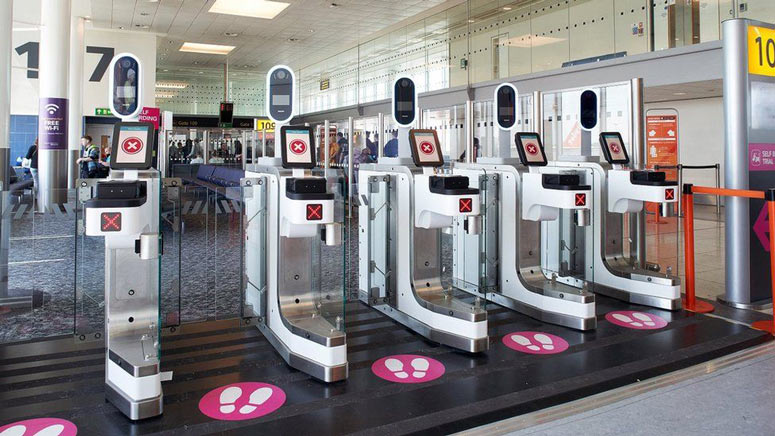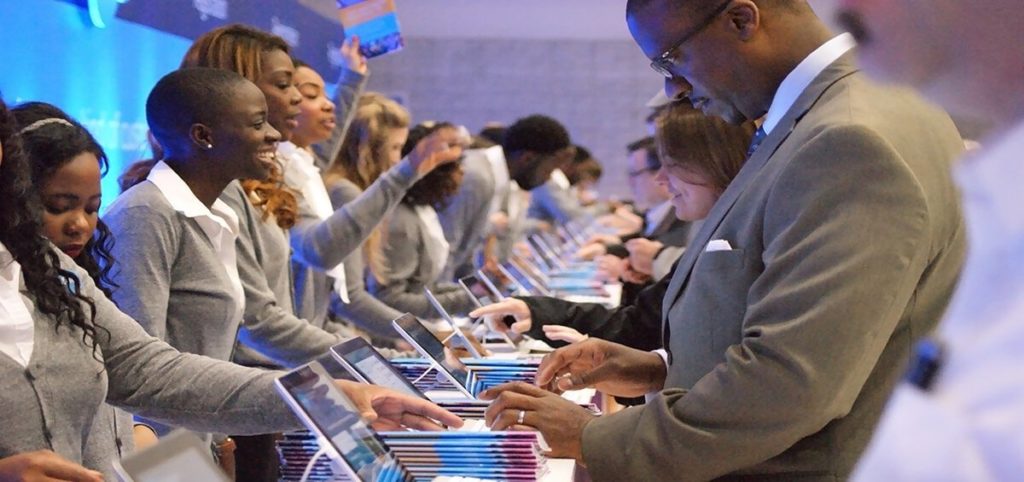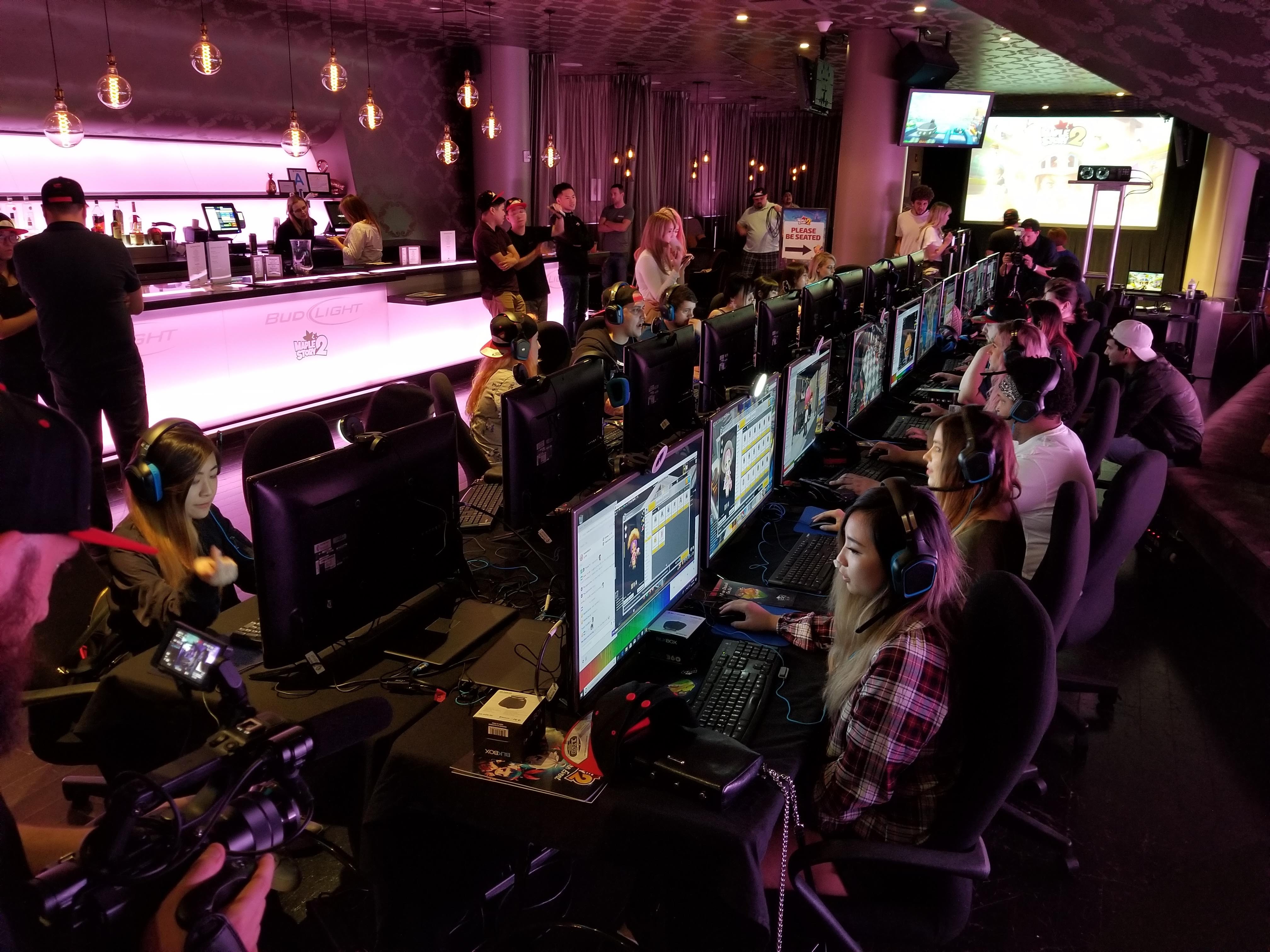Is Facial Recognition the Next Big Innovation for the Events Industry?
Facial recognition technology is becoming more mainstream all the time, thanks in no small part to Apple’s integration of the technology into their latest iPhones and iPads. Every day, people use this advanced technology to unlock their devices or authorize purchases, which has made the technology more palatable to average users. For years now, law enforcement officials have used this technology, and we’ve also seen it used for security purposes at places like airports. As facial recognition technology continues to advance, we think we’ll soon see it commonly used in the events industry. In fact, we think it may be the next big innovation for events. Here’s why.
Security and Facial Recognition Technology
We’ll start by noting that this technology is still relatively new when it comes to average users. This means that some people are wary of it, since they’re worried that it will make it easy to track their whereabouts. But we’re seeing the use of facial recognition technology in lots of places now. For example, airlines, in conjunction with the Department of Homeland Security, are using it to increase security and reduce check-in times and complications. As we noted above, iPhone and iPad users now interact with facial recognition technology on a daily basis. In short, it’s starting to become a part of our everyday lives as people become more and more accepting of it.
That said, it’s important to realize that some people wish to opt out of using facial recognition technology. This is an option at the airport, it’s an option on the iPhone, and it will likely be an option at events since some people are still leery of it. If you’re an event planner who is curious about integrating this into your next event, it’s important to communicate that the technology doesn’t store the images or use them for tracking; rather, the images are used to create unique a code for each person that can then be used for various benefits. Plus, we’d recommend using encrypted internet so that the data is safe and secure.

Benefits of Facial Recognition Technology for the Events Industry
Facial recognition offers numerous benefits for the events industry. This innovative technology can streamline events, help planners easily collect event data in real time, and increase event security. While using it for events and conferences is still a relatively new advancement, we anticipate that this will become the norm in a short time.

Efficiency of Check-Ins
Perhaps the benefit that your attendees will notice the most is the fact that facial recognition technology can drastically decrease the amount of time that they will stand in line to check in to the event. As we all know, event check-in can be long and tedious. With paper tickets, people dig through their bags or wallets or pockets. With emailed tickets, people search through their phones to find confirmations or QR codes. But with facial recognition technology, this lag can be reduced significantly (some sources say that it can cut the wait time by 70% and take only nine seconds per attendee).
Here’s how it works. Before the event, attendees will upload a photo of themselves through an event app. This could be a quick selfie or a photo already stored on their phone. Then, this photo is used to create a unique code for that attendee, so that when they walk up to check in, a fast face scan using an iPhone or iPad will recognize them and let them seamlessly enter the venue. Bottlenecking may become a thing of the past.
Improved Event Security
Another major way in which facial recognition technology can improve events is it inherently improves security. Security personnel can easily recognize people who aren’t registered to the event (or, in some cases, people who might be considered a threat). It also cuts down on the ability for people to cheat the system. For example, facial recognition technology would make it impossible to share over-21 or VIP armbands between multiple individuals, have people forward email confirmations or tickets to others, or try to enter using a fake ID. Event personnel would be able to quickly recognize if unregistered people are trying to enter certain sessions or prohibited areas of the venue, making things feel more streamlined — and safer.
Personalized Attendee Experience
To that end, using facial recognition technology for events may also allow event planners to truly personalize events for their attendees like never before. Exhibitors could have an image of people who have made appointments with them beforehand, making them easier to recognize. By asking attendees questions about their personal preferences, planners can have personalized swag bags made (with none wasted). Plus, having a tablet or an iPhone outside of each exhibit or session, planners can tell which parts of the events are most post popular, helping with future events and marketing opportunities. We have several models that festivals and events rent from us for their needs, both of these can be used with stands and accessories for facial recognition:
Real-Time Data on Event’s Success
Having attendees check in to event sessions using facial recognition technology makes transitions smooth. It also, however, allow event planners to view in real-time how well the event is going. If few eventgoers are attending a certain session, it would let planners know that that session isn’t popular for some reason, which would lead to valuable analysis as to why that’s the case, whether it’s the time, topic, or presenter.
On the other hand, if most attendees check in to the same sessions, event planners will know for future events which presenters and topics are most popular, increasing event engagement and success.
Replaces Post-Event Feedback
Similarly, facial recognition technology may help event planners gather valuable post-event data. Every event planner knows the important of post-event feedback, as well as how difficult it can be to retrieve it from attendees. When the event is over and the attendees are “checked out” both physically and figuratively, it can be difficult to convince them to take a post-event survey or questionnaire.
With facial recognition technology, this is done for you, in a sense. Some of the advanced aspects of the technology can read attendee emotions via body language and facial expressions. This, combined with examining data about session attendance, can show event planners how attendees experienced the event — without having to directly ask them.
Streamlines Payments
Those who use iPhones may already regularly use this feature, but facial recognition technology can also help make payments smoother, while still keeping things secure. Using an event app on an iPhone, attendees can scan their faces in order to pay for things or add or to a virtual event-specific “tab.” In addition to reducing bottlenecking and lines for purchases, it can keep payment information secure.
While it may take some time for event attendees to completely embrace facial recognition technology, we think we’re right on the cusp of this becoming an accepted part of the event process. The many benefits can help event professionals, but they also make the event more enjoyable for attendees. From safer security measures to faster lines, it’s a promising innovation for the events industry as a whole.
About eTech Rentals
eTech Rentals is a national technology solutions provider located in Southern California specializing in rental technology integration. eTech is committed to long-standing client relationships and consistent, reliable local service, trusted by expert event planners, film and entertainment production companies, and businesses in California and nationwide.
Learn more about eTech Rentals at: https://etechrentals.com/




